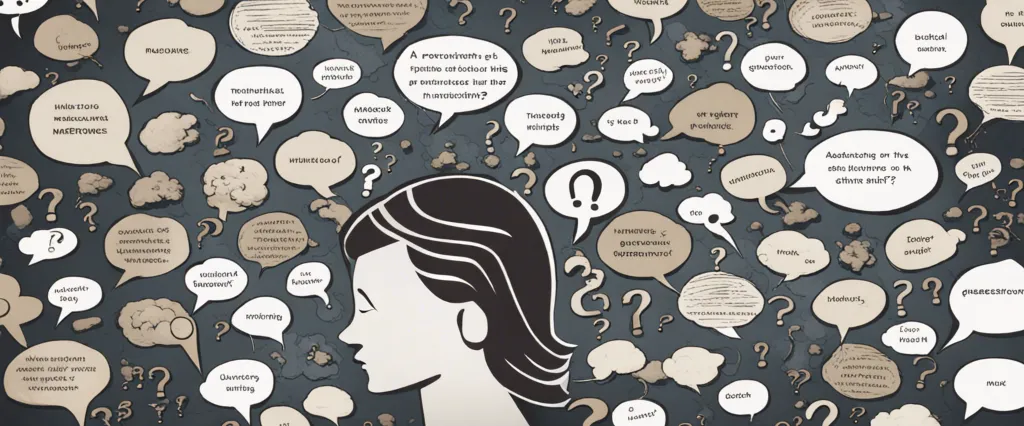——Asking the Right Questions by M. Neil Browne & Wiser by Cass R. Sunstein

In today’s complex and rapidly changing world, the ability to think critically and make informed decisions has become increasingly important. As individuals, we are constantly bombarded with information, faced with diverse perspectives, and confronted with a myriad of choices. While it may seem overwhelming at times, honing our critical thinking skills and enhancing our decision-making abilities can empower us to navigate this vast landscape with confidence.
Two influential books that tackle the art of critical thinking and decision-making are “Asking the Right Questions” by M. Neil Browne and “Wiser” by Cass R. Sunstein. Both authors delve into the depths of human reasoning, outlining practical frameworks and strategies to help readers enhance their thought processes and make wiser choices.
Drawing from diverse academic disciplines such as psychology, philosophy, and economics, Browne and Sunstein share a common goal: to equip readers with the necessary tools and insights to improve their decision-making abilities. However, their approaches and perspectives differ, providing readers with unique lenses through which to explore the world of critical thinking.
In this comparative study, we will evaluate and contrast the main ideas presented in “Asking the Right Questions” and “Wiser.” We will examine their respective methodologies, key principles, and practical applications to shed light on their similarities and differences. Furthermore, we will analyze the potential strengths and limitations of each book, ultimately uncovering how they can complement and enrich our understanding of critical thinking and decision-making.
By critically examining the two works side by side, we aim to explore the diverse insights and perspectives offered by Browne and Sunstein. This study aims to delve beyond a mere evaluation of their written works, seeking to uncover the underlying principles that drive effective critical thinking. As we embark on this comparative journey, we encourage readers to challenge their own assumptions, engage in rigorous self-reflection, and ultimately consider how these ideas can shape their own thinking processes and decision-making abilities.
In the following sections, we will delve into the core concepts and theories presented in “Asking the Right Questions” and “Wiser,” drawing out their similarities and highlighting their distinctive approaches. Through this exploration, we hope to empower readers to become more nuanced and agile thinkers, ultimately surfacing insights that can be applied in both personal and professional contexts.
As we embark on this comparative study, we invite readers to join us on a thought-provoking journey, navigating the intriguing world of critical thinking and decision-making as illuminated by M. Neil Browne and Cass R. Sunstein.
Brief Summary of Two Books
Asking the Right Questions by M. Neil Browne
“Asking the Right Questions” by M. Neil Browne is a guidebook on critical thinking and effectively analyzing information. The book emphasizes the importance of questioning ourselves and the world around us to make informed decisions and avoid falling victim to biases and fallacies.
The author explores the concept of critical thinking and presents a framework for asking the right questions in different situations. By understanding the difference between subjective and objective viewpoints, he encourages readers to challenge their own assumptions and double-check the reliability of sources.
Browne provides various tools and techniques for evaluating arguments, including identifying logical fallacies and understanding the importance of evidence. He emphasizes the significance of precision in language and teaches readers how to deconstruct and analyze different types of arguments, such as cause and effect, analogies, and generalizations.
The book also addresses the role of emotions and biases in decision-making, urging readers to approach information with skepticism and to consider multiple perspectives. Browne challenges readers to think critically about ethical issues, personal beliefs, social norms, and the influence of media.
Overall, “Asking the Right Questions” is a practical and comprehensive guide that aims to enhance critical thinking skills and equip readers with the ability to analyze information effectively in various contexts. It serves as a valuable resource for anyone seeking to develop their critical thinking abilities and make well-informed decisions.
Wiser by Cass R. Sunstein
“Wiser: Getting Beyond Groupthink to Make Groups Smarter” by Cass R. Sunstein explores the concept of collective decision-making and how to improve it. Drawing from various disciplines including psychology, economics, and political science, Sunstein highlights the flaws and biases inherent in group decision-making processes. He identifies common pitfalls such as group polarization, conformity, and the echo chamber effect, which hinder the quality of decisions made by groups.
To counter these challenges, Sunstein proposes a range of strategies and methods to enhance group intelligence and foster wiser decision-making. He emphasizes the importance of diversity within groups, promoting the inclusion of varying perspectives and dissenting voices to avoid groupthink and increase the chances of making better choices. Furthermore, he offers insights into mechanisms like prediction markets and deliberative practices, which can help improve the accuracy and quality of collective decisions.
Throughout the book, Sunstein provides numerous real-world examples and case studies to illustrate the dynamics of group decision-making and its consequences. He also delves into the concept of individual biases and addresses how they manifest in group contexts. Ultimately, “Wiser” encourages readers to rethink their understanding of group decision-making and provides practical guidance on how to harness the collective intelligence of groups to make better decisions.
Comparison between Two Books

Similarities in Decision-making
Both “Asking the Right Questions” by M. Neil Browne and “Wiser” by Cass R. Sunstein explore decision-making processes and offer methods to improve critical thinking. Although they have different approaches, there are several similarities in the way decision-making is presented in these books.
1. Importance of questioning assumptions: Both books emphasize the need to question assumptions before making decisions. Browne argues that critical thinkers should challenge their own and others’ assumptions, while Sunstein highlights the significance of recognizing our own biases and questioning them.
2. Identifying biases and cognitive errors: Both authors acknowledge that humans are prone to biases and cognitive errors that can hinder effective decision-making. Browne provides a framework for identifying common errors, such as hasty generalizations or oversimplifications. Similarly, Sunstein explores various biases and suggests methods to counteract them, such as increasing exposure to diverse perspectives.
3. The role of evidence and data: Both books highlight the importance of basing decisions on evidence and data rather than personal beliefs or opinions. Browne emphasizes the need for evidence-supported reasoning, while Sunstein presents research on how collective decision-making can benefit from aggregating diverse individual perspectives.
4. Considering alternative viewpoints: Both authors stress the significance of considering alternative viewpoints and engaging with diverse perspectives. Browne encourages critical thinkers to explore opposing arguments and avoid confirmation bias, while Sunstein discusses the benefits of collective intelligence, where groups of diverse individuals collectively make better decisions.
5. The influence of social context: Both books address the influence of social context on decision-making. Browne discusses how external pressures or authority can impact critical thinking, while Sunstein delves into concepts like group polarization or groupthink that can affect collective decision-making.
6. Frameworks for decision-making: Both authors provide frameworks or sets of guidelines to assist readers in making better decisions. Browne offers the “Socratic questioning” method, encouraging readers to ask relevant and insightful questions. Sunstein presents strategies for improving deliberation, such as breaking complex decisions into smaller parts or using prediction markets to aggregate information.
In summary, “Asking the Right Questions” and “Wiser” share several similarities in their focus on questioning assumptions, recognizing biases, relying on evidence, considering alternative views, understanding social context, and providing frameworks for decision-making. Both books aim to equip readers with the tools to become more thoughtful and effective decision-makers.
Divergences in Decision-making
Asking the Right Questions by M. Neil Browne and Wiser by Cass R. Sunstein are both books that focus on decision-making and the importance of asking the right questions. However, they differ in their approach and perspective towards decision-making.
One major divergence between these books is the emphasis on individual decision-making in Asking the Right Questions, whereas Wiser places a stronger emphasis on collective decision-making. Browne’s book primarily focuses on equipping individuals with the necessary tools and techniques to make better decisions on their own. It emphasizes the importance of critical thinking, logical reasoning, and asking insightful questions in order to arrive at well-informed decisions.
On the other hand, Sunstein’s book Wiser takes a broader perspective and explores decision-making in groups or organizations. Sunstein argues that collective decision-making can often lead to better outcomes and reduce biases that individuals may have. He delves into the dynamics of group decision-making, highlighting the roles of diverse perspectives, constructive dissent, and deliberation in reaching wiser decisions.
Another divergence lies in the underlying motivation behind the two books. Asking the Right Questions primarily aims to improve individual decision-making skills for personal and professional growth. Browne emphasizes the importance of critical thinking for everyday decisions and presents practical frameworks that individuals can apply to any decision-making scenario.
In contrast, Wiser focuses not only on improving individual decision-making but also on the societal impact of collective decision-making. Sunstein highlights how group decisions have implications for democracy, public policy, and social progress. He explores strategies to harness the wisdom of crowds and the potential pitfalls of groupthink or polarizing divisions.
Furthermore, the books diverge in their style and structure. Asking the Right Questions by Browne is more of a guidebook, providing a step-by-step approach with exercises and examples for readers to practice their critical thinking skills and apply them to real-world situations. It is designed to be hands-on and applicable.
Wiser, on the other hand, is more theory-driven and intellectual in its approach. Sunstein provides a comprehensive analysis of decision-making theories and research, drawing on multiple disciplines such as psychology, economics, and political science. He illustrates his arguments with various case studies and examples.
In summary, while both Asking the Right Questions and Wiser revolve around decision-making and the importance of asking appropriate questions, they diverge in their perspective (individual vs. collective decision-making), focus (personal vs. societal impact), and style (practical guide vs. academic analysis). Reading both books can offer a comprehensive understanding of decision-making from different angles and equip individuals with valuable tools for making better decisions.

Conclusion
Both “Asking the Right Questions” by M. Neil Browne and “Wiser” by Cass R. Sunstein offer valuable insights, and deciding which book is more worthy of reading depends on your specific interests and needs.
“Asking the Right Questions” is a guidebook on critical thinking and provides practical skills to ask thought-provoking questions in various situations. The book focuses on improving your reasoning abilities, analyzing arguments, and making informed decisions. It is highly beneficial if you want to enhance your critical thinking skills and apply these skills to various aspects of your life, such as problem-solving, decision-making, and understanding complex issues.
On the other hand, “Wiser” by Cass R. Sunstein explores the concept of group decision-making and how it can lead to better outcomes. The book delves into behavioral economics and social psychology to explain how individuals’ biases and group dynamics can influence decision-making processes. If you are interested in understanding how groups can make more accurate and effective decisions, this book would be a great choice. It also provides practical strategies to harness collective intelligence and avoid common pitfalls in group decision-making.
Ultimately, the choice between the two books depends on your personal goals and interests. If you are primarily focused on improving your individual critical thinking skills, “Asking the Right Questions” would be the more suitable option. On the other hand, if you want to explore the dynamics of group decision-making and how to make better decisions collectively, “Wiser” would be a better fit.


